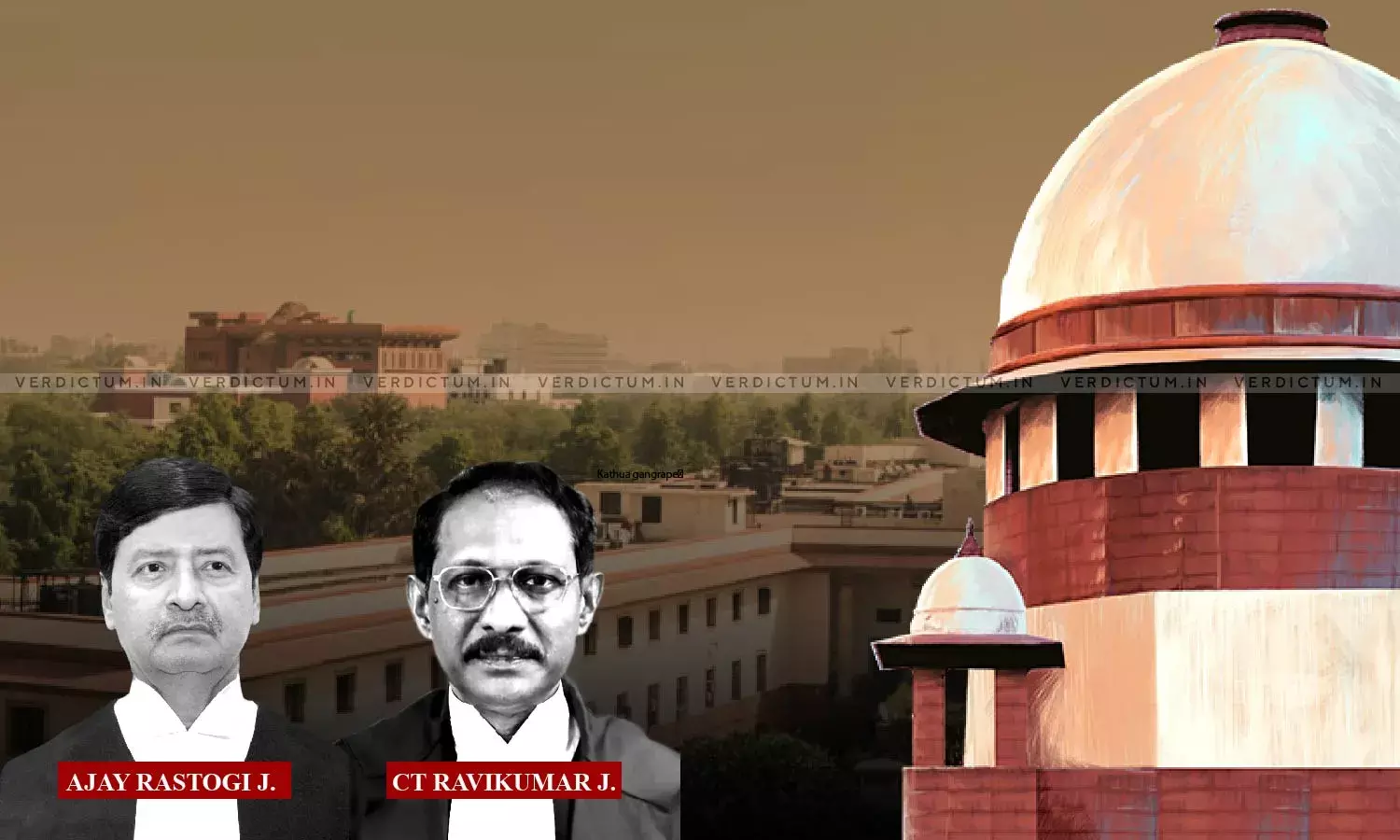When Civil Dispute Is Given Cloak Of Criminal Offence, Courts Can Quash Criminal Proceedings U/s. 482 CrPC- SC
The Supreme Court has held that criminal proceedings could be quashed in the exercise of inherent powers under Section 482 of the Criminal Procedure Code, 1973 (CrPC) when it was found that the dispute was given a cloak of a criminal offence in the issue which was essentially of civil nature and, was used as a weapon of harassment.
The Bench of Justice Ajay Rastogi and Justice CT Ravikumar quashed the criminal proceedings and observed that consequential investigation based on application under section 156(3) should specify the essential ingredients to attract the alleged offences. But the allegations made in the application were not only vague but also did not carry the essential ingredients to constitute the alleged offences.
“The ingredients to attract the alleged offence referred to hereinbefore and the nature of the allegations contained in the application filed by the respondent would undoubtedly make it clear that the respondent had failed to make specific allegation against the appellants herein in respect of the aforesaid offences. The factual position thus would reveal that the genesis as also the purpose of criminal proceedings are nothing but the aforesaid incident and further that the dispute involved is essentially of civil nature.” observed the Court.
Advocate Ravi Sharma appeared for the appellant and Advocates Anindita Mitra and Nandini Sen Mukherjee appeared for the respondents.
In this case, an application under section 156(3) CrPC was moved by the respondent before the Magistrate based on which an FIR was registered against the appellants under Sections 323, 384, 406, 423, 467,468,420 and 120B of the Indian Penal Code.
It was contended by the appellants that the complaint was actuated by mala fides and the allegation levied against the appellants pertained to a dispute which was purely of civil nature, regarding the removal of the respondent as the Secretary of a School and from the board of trustees.
The Court was also apprised of the fact that the respondent had already resorted to civil remedies, and that he had failed to obtain favourable orders in the suit and therefore, had resorted to criminal law remedies.
Consequently, the appellants approached the High Court under Section 482 of the CrPC for quashing the FIR registered against them. But the High Court declined to exercise the power and held that perusal of the case diary as also the other materials prima facie made out a case for investigation. Aggrieved of the said order, appeal was preferred before the Apex Court.
The Apex Court noted that “There can be no doubt with respect to the position that jurisdiction under Section 482 Cr.P.C. is to be exercised with care and caution and sparingly. To wit, exercise of the said power must be for securing the ends of justice and only in cases where refusal to exercise that power may result in the abuse of process of law.”
The Court then scanned the application filed by the respondent under section 156(3) and found that the existence of a civil dispute regarding the removal of the respondent as Secretary of the Schoo was concealed.
“Then, the question is why would the respondent conceal those relevant aspects? The indisputable and undisputed facts (admitted in the counter-affidavit by the respondent) would reveal the existence of the civil dispute on removal of the respondent... Obviously, it can only be taken that since the removal from the office of the Secretary and the trusteeship was the causative incident, he concealed the pendency of the civil suit to cover up the civil nature of the dispute.” observed the Court.
The Court further referred to its decision in the case of Paramjeet Batra v. State of Uttarakhand & Ors. (2013) 11 SCC 673 and said that “The appellants and the respondents have given a cloak of criminal offence in the issue. In such circumstance when the respondent had already resorted to the available civil remedy and it is pending, going by the decision in Paramjit Batra (supra), the High Court would have quashed the criminal proceedings to prevent the abuse of the process of the Court but for the concealment.”
Considering the circumstances and the issue involved, the Court held that “the respondent had already approached the jurisdictional civil court by instituting a civil suit and it is pending, there can be no doubt with respect to the fact that the attempt on the part of the respondent is to use the criminal proceedings as weapon of harassment against the appellants.”
The Court, therefore, quashed the FIR and said that “we have no hesitation to hold that permitting continuance of the criminal proceedings against the appellants in the aforesaid circumstances would result in abuse of the process of Court and also in miscarriage of justice."
Accordingly, the appeal was allowed.
Cause Title- Usha Chakraborty & Anr. v. State of West Bengal & Anr.




